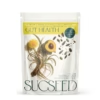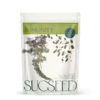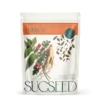SUCSEED is the simplest way to bring an extra boost of powerful wholefood nutrition into your life
SUCSEED has been specially created so you can add it to any meal without overpowering the flavour. It offers a delicate taste, a great texture and a prefect health kick! Let us tell you more…
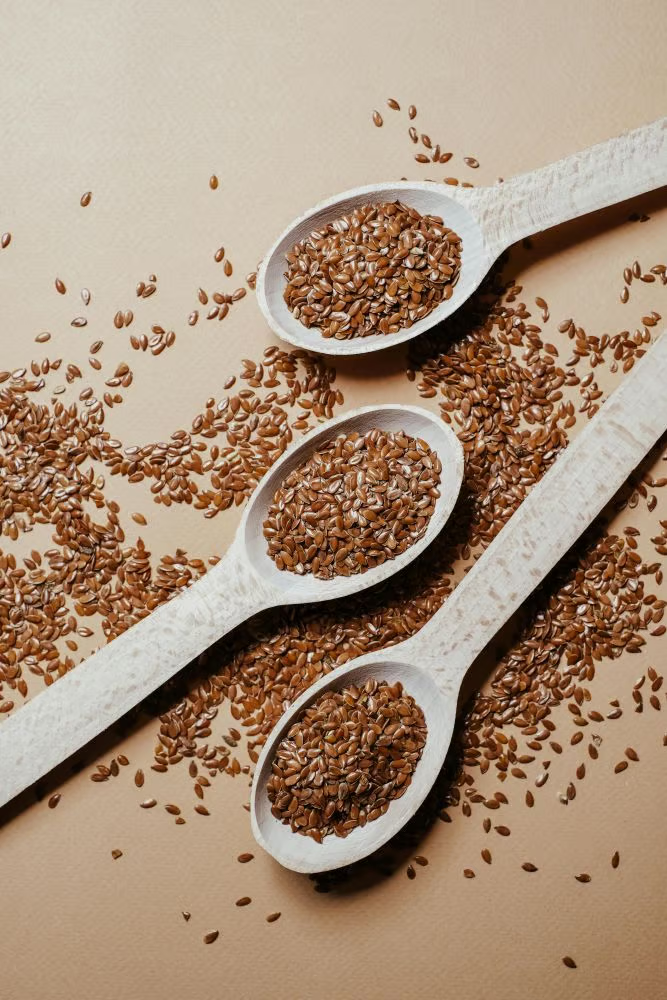

Our story
Welcome to SUCSEED
We believe we’ve found the easiest way possible to add an extra boost of wholefood nutrition into your life and we are so happy to share it with you!
As an editor of glossy magazines, I spent years working with people worrying about their health, and that of their family. We all know how hard it is to juggle work and family life and still make healthy eating a priority! I decided I wanted to do something to help… So, I trained to be a nutritionist and learnt about the incredible properties of seeds and botanical herbs. I experimented with growing seeds on our farm in Norfolk and spent over two years sourcing the very best ingredients from organic and regenerative farms.
SUCSEED is the result! The perfect blend of seeds and complementary botanicals that offer functional benefits for specific health needs. Just sprinkle on to any meal and enjoy!
Helen Johnston
Founder, SUCSEED
We source the finest ingredients. Good for you, good for the planet.
We work with organic suppliers in Europe and regenerative farmers in the UK for all our seeds and many of our herbs. Some of our botanicals come from a little further afield as they thrive in more tropical climates. All are the very best quality.
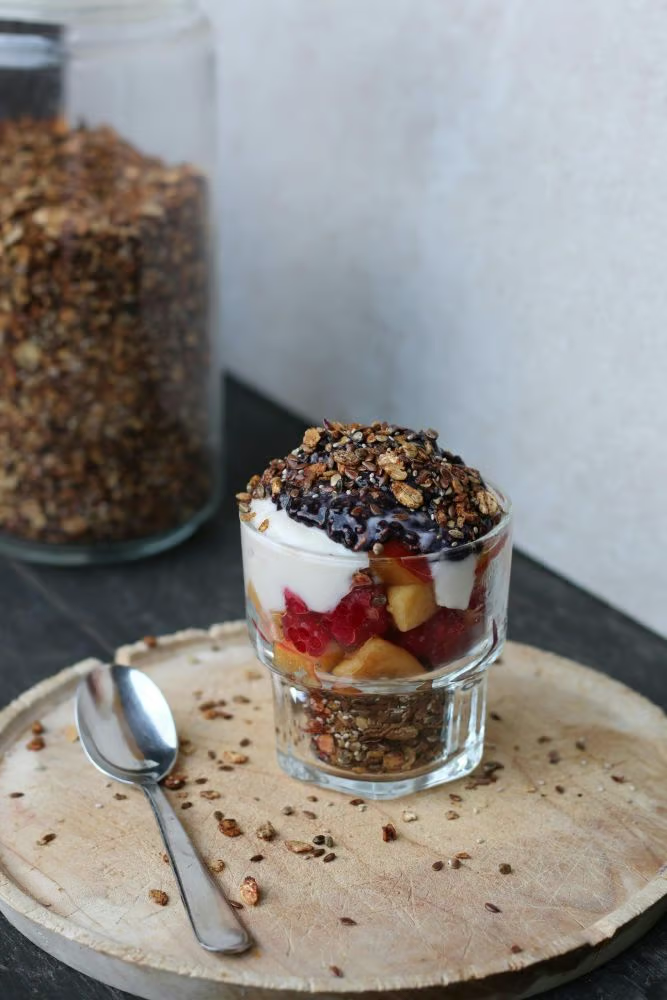

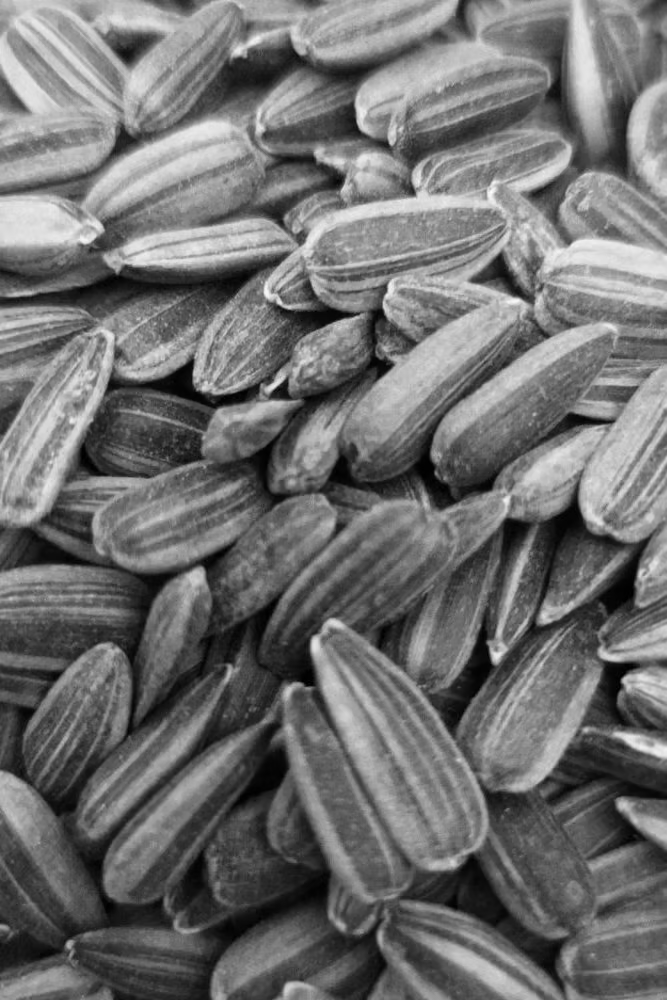
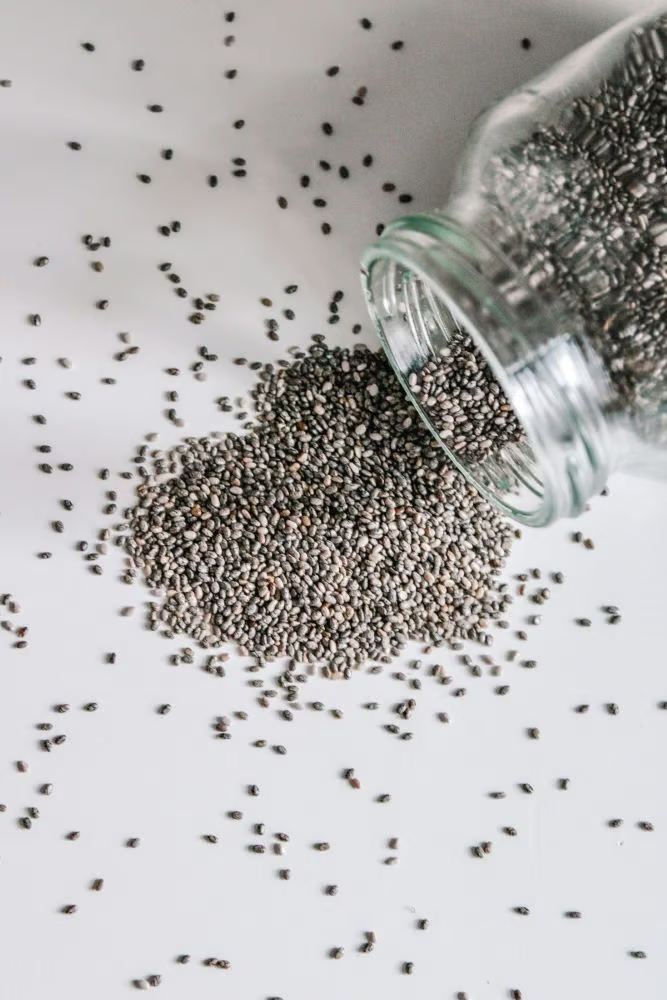
Benefits of seeds
Fibre rich
Seeds are full of fibre which we need for a healthy gut, to aid digestion and to regulate blood sugar. In the UK we only eat an average of 18g a day when the minimum recommended amount is 30g.
Healthy fats
Rich in healthy fats, including omega-3 and omega-6, seeds support heart health, brain function, and help reduce inflammation. They also provide essential nutrients, sustain energy levels and aid in the absorption of fat-soluble vitamins for overall well-being.
Plant protein
A great source of plant protein, seeds contribute to muscle growth, repair and overall body function. They support metabolism, provide sustained energy, and help maintain a balanced diet
Seed selection

Flax seed
Flax seeds are a nutrient-dense superfood rich in omega-3 fatty acids (ALA), fibre, lignans, magnesium, and B vitamins. Their soluble and insoluble fibre nourishes gut bacteria, promotes digestion, and supports regularity. Omega-3s and B vitamins enhance brain function, improving mental clarity, concentration, and sustained energy. Lignans and antioxidants strengthen the immune system by reducing inflammation and oxidative stress. Cold-milled flax seeds increase bioavailability, ensuring optimal absorption of key nutrients for gut balance, sustained vitality, cognitive performance, and immune resilience, making them an essential addition to a healthy, balanced diet.
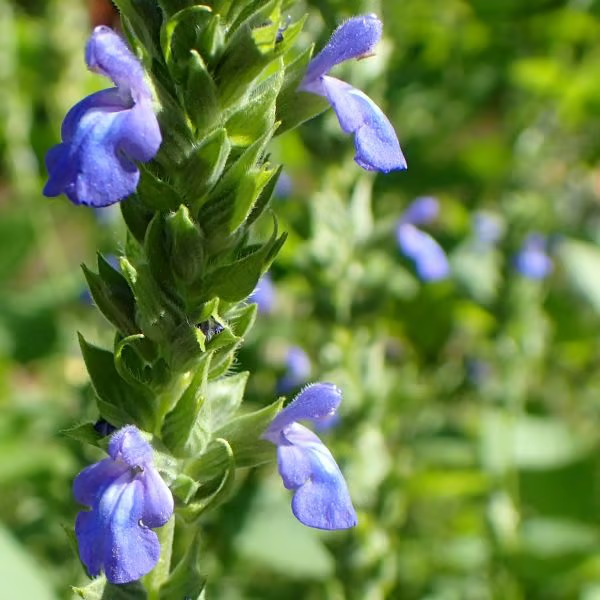
Chia seed
Chia seeds are a complete protein and rich in omega-3s (ALA), fibre, antioxidants, calcium, magnesium, and B vitamins. They provide all essential amino acids, crucial for muscle repair and sustained energy. Their high fibre and mucilaginous quality support digestion, gut microbiome balance, and regularity. Omega-3s and B vitamins enhance brain function, focus, and mental clarity, while antioxidants and zinc strengthen immune defence. Chia seeds absorb water, promoting hydration and endurance, making them uniquely beneficial for sustained vitality, cognitive performance, and overall well-being.
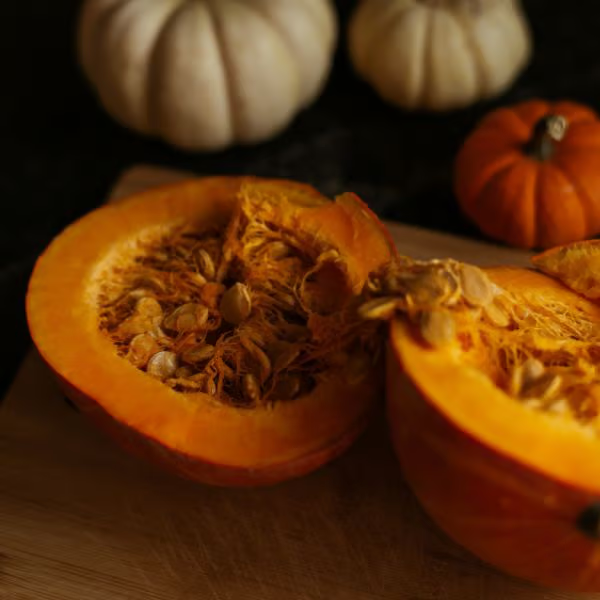
Pumpkin seed
Pumpkin seeds are a nutrient powerhouse, rich in zinc, magnesium, iron, protein, fibre, healthy fats, and antioxidants. Their zinc content strengthens immune function, while iron and magnesium enhance oxygen transport, reducing fatigue and increasing sustained energy levels. Healthy fats and antioxidants support brain function, improving cognition, memory, and mental clarity. Fibre and prebiotics nourish the gut microbiome, promoting digestion and a balanced gut environment. Pumpkin seeds also reduce inflammation, support heart health, and regulate blood sugar, making them an essential addition to a healthy, well-rounded diet for optimal vitality and performance.

Sunflower seed
Sunflower seeds are packed with vitamin E, B vitamins, magnesium, selenium, zinc, fibre, and healthy fats. Their high vitamin E content acts as a potent antioxidant, protecting cells from oxidative stress, reducing inflammation, and supporting immune function. B vitamins and magnesium enhance energy production and brain function, improving focus, memory, and cognitive performance. Zinc and selenium strengthen immunity, while fibre and prebiotics promote gut health and microbiome balance. Sunflower seeds also support heart health, nerve function, and skin health, making them a unique superfood for overall well-being and vitality.
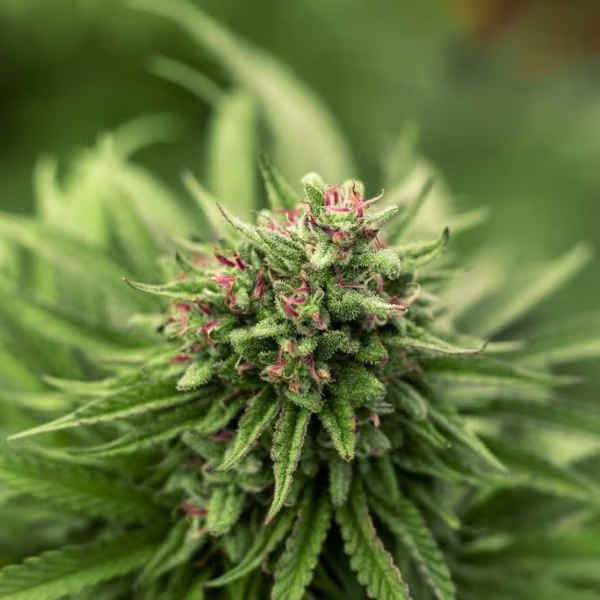
Hemp seed
Hemp seeds are a complete protein source, providing all nine essential amino acids, making them ideal for muscle repair, energy, and immune function. Rich in omega-3 and omega-6 fatty acids, fibre, magnesium, and B vitamins, they support brain health, improve focus, and enhance gut health by nourishing beneficial bacteria and promoting digestion. Unique for their perfect omega ratio, they reduce inflammation and boost cardiovascular health. Hemp was widely grown in the UK from the Middle Ages to the 19th century. It is now regaining recognition due to its incredible versatility and health giving-properties. Hemp also improves soil by fixing nitrogen, removing toxins and sequestering carbon.
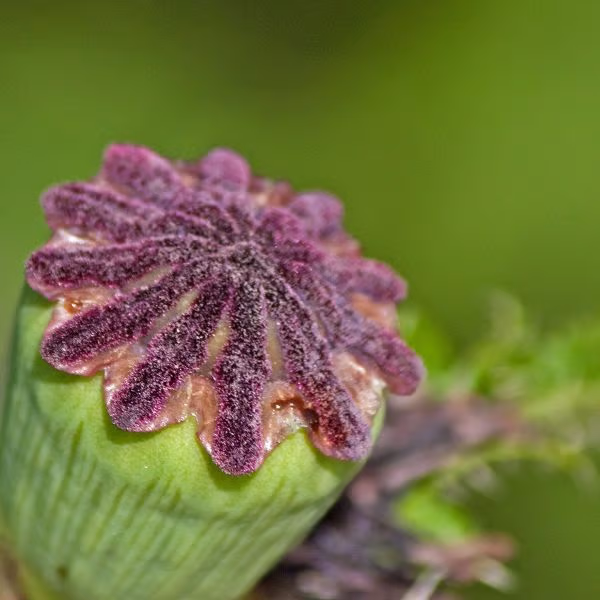
Poppy seed
Poppy seeds are nutrient-rich, packed with calcium, magnesium, iron, zinc, B vitamins, fibre, and healthy fats, supporting energy, gut health, and overall well-being. Their B vitamins and iron enhance oxygen transport and red blood cell production, reducing fatigue and increasing energy metabolism. Magnesium and healthy fats support muscle function and sustained energy release. Unique for their alkaloid content, poppy seeds promote relaxation and stress reduction, indirectly supporting energy levels. Their high fibre content aids digestion, promotes gut microbiome balance, and supports regular bowel movements, making them a powerful superfood for both vitality and digestive health.

Camelina seed
Camelina seeds are a nutrient-dense superfood, rich in EPA and DHA omega-3s, complete plant protein, fibre, vitamin E, magnesium, and antioxidants, supporting gut health, immunity, and overall vitality. Their high EPA and DHA content, rare in plant sources, enhances brain function, reduces inflammation, and supports heart health. Complete plant protein aids muscle repair and immune function, while fibre nourishes gut bacteria and promotes digestion. Vitamin E and antioxidants protect immune cells, reducing oxidative stress. Unique for their ideal omega-3 to omega-6 ratio, camelina seeds offer superior benefits for gut balance, immune resilience, and cellular health.
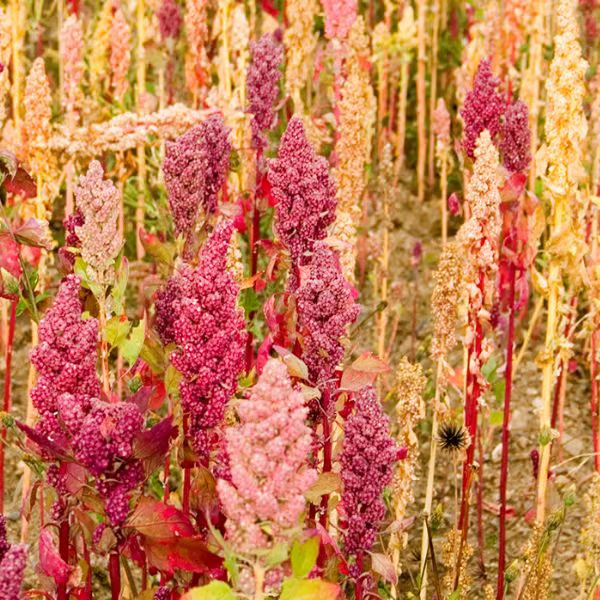
Quinoa seed
Unique for its low glycaemic index and gluten-free profile, quinoa (also known as a pseudo-grain) is easily digestible and nutrient-dense, making it a versatile superfood for sustained energy and digestive health. Quinoa seeds are a rich source of fibre, magnesium, iron, B vitamins, and antioxidants, supporting energy, gut health, and overall well-being. As a complete protein, quinoa fuels muscle repair and sustained energy. Its iron and B vitamins enhance oxygen transport and metabolism, preventing fatigue. High fibre content aids digestion, promotes gut microbiome balance, and improves transit time while stabilising blood glucose levels for steady energy.
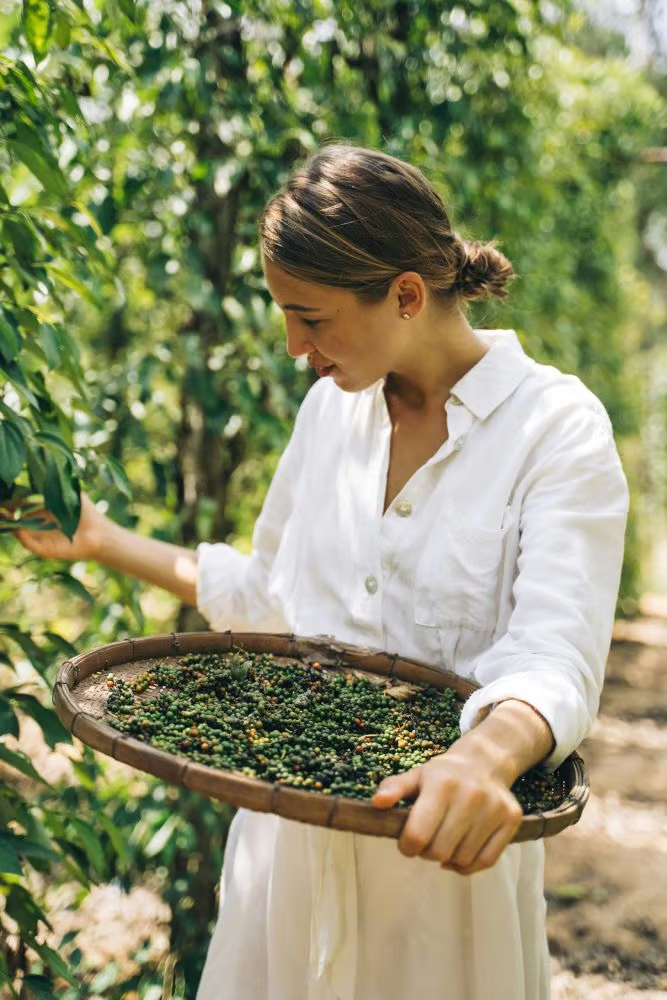

Benefits of botanicals
Traditional use
Botanical herbs have been used for centuries in traditional medicine across cultures to treat ailments and promote healing, harnessing their natural properties for overall health and well-being.
Nutrient dense
Many herbs provide essential vitamins, minerals, and antioxidants that enhance digestion, support metabolism, and strengthen the immune system, making them a valuable addition to a balanced and nutritious diet.
Support wellbeing
Botanical herbs contribute to mental and physical well-being by reducing inflammation, aiding relaxation, and supporting overall vitality, helping to maintain long-term health through their natural therapeutic benefits.
SUCSEED Botanicals By Blend
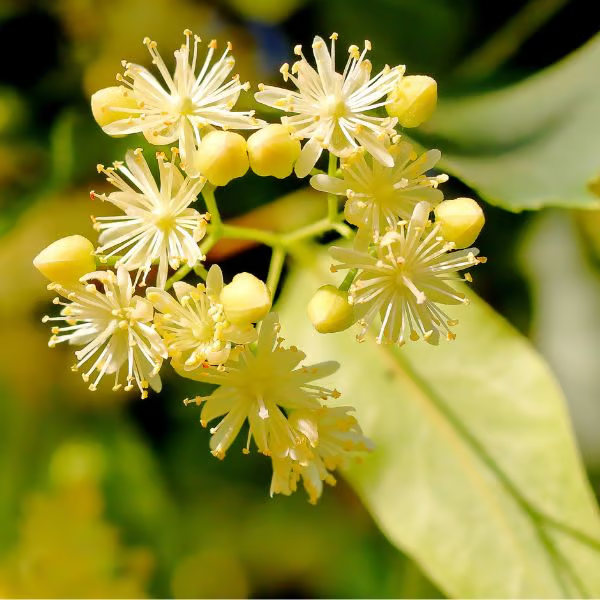
Lime Tree Blossom
Lime tree flower, also known as linden, is a calming botanical, traditionally used to combat anxiety and stress. Often used for relaxation and mood lifting. It is rich in flavonoids, volatile oils, and antioxidants, which help reduce oxidative stress in the brain, protecting neurons from damage and enhancing cognitive longevity. Its natural nervine properties promote relaxation while reducing mental fatigue, allowing for improved concentration and sustained focus. By calming the nervous system lime tree flower enhances, clarity and overall cognitive resilience.

Chamomile
Chamomile (Matricaria recutita) has long been used in traditional herbal medicine to calm the mind and soothe the nervous system. Modern research supports its role in helping reduce anxiety and mental tension—two common barriers to focus and clear thinking. Studies suggest that chamomile’s natural compounds, including apigenin, interact with receptors in the brain to promote a relaxed but alert state. This gentle calming effect may help improve concentration, especially during periods of stress or mental overload, making chamomile a valuable ally for supporting cognitive clarity and sustained attention.

Ginkgo Biloba
Ginkgo biloba has been used for thousands of years in traditional Chinese medicine to support memory, mental clarity, and overall vitality. Known as a “living fossil,” its fan-shaped leaves were believed to enhance circulation and sharpen the senses. Modern research supports Ginkgo’s benefits for focus and cognition, showing it can improve attention, mental processing, and memory—particularly during periods of stress or fatigue. Its antioxidant and circulation-supporting properties are thought to nourish the brain and protect against cognitive decline, making it a valuable plant for sustaining clarity and concentration.

Moringa
Moringa (Moringa oleifera), often called the “tree of life,” has been used in traditional Ayurvedic and African medicine for centuries to support mental clarity, vitality, and overall well-being. Its nutrient-rich leaves were believed to nourish both body and mind. Today, research supports Moringa’s role in protecting brain health and promoting cognitive function. Its natural antioxidants and plant compounds may help reduce mental fatigue, support memory, and improve focus—especially during periods of stress. Moringa’s long-standing traditional use is now being validated by modern science.
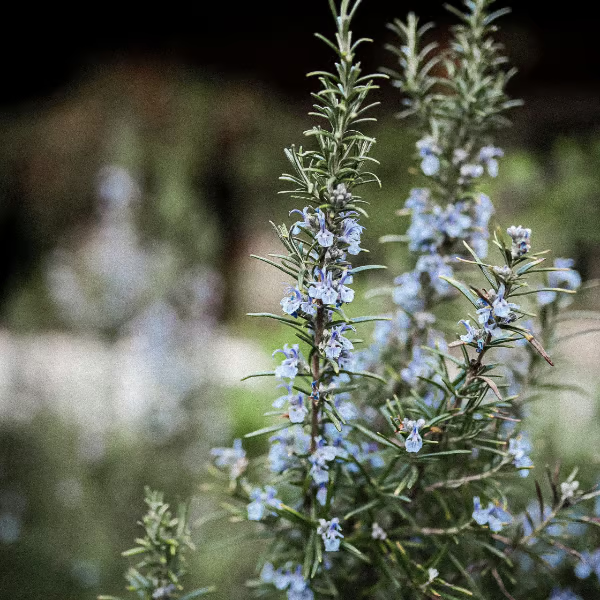
Rosemary
Modern research supports rosemary (Rosmarinus officinalis) as a natural aid for focus and cognitive performance. Studies show that compounds in rosemary can enhance memory, improve attention, and protect the brain from oxidative stress. Its aroma alone has been linked to better concentration and mental clarity, likely due to its effects on circulation and neurotransmitter activity. A 2022 scientific review highlights its antioxidant and anti-inflammatory properties as key to its brain-supporting effects. Long before these findings, rosemary was treasured in ancient Greek and Roman cultures as the “herb of remembrance,” used to strengthen memory and clear the mind.

Nettle Leaf
Nettle leaf is a nutrient-dense botanical, rich in iron, vitamin C, magnesium, chlorophyll, B vitamins, and antioxidants, supporting energy and overall vitality. Its high iron and vitamin C content enhances red blood cell production and oxygen transport and is traditionally used to help reduce fatigue associated with blood deficiency. Magnesium and B vitamins support cellular metabolism and adrenal function, optimizing energy production. Chlorophyll improves detoxification and energy production and with its anti-inflammatory properties reduces oxidative stress, preventing energy depletion.
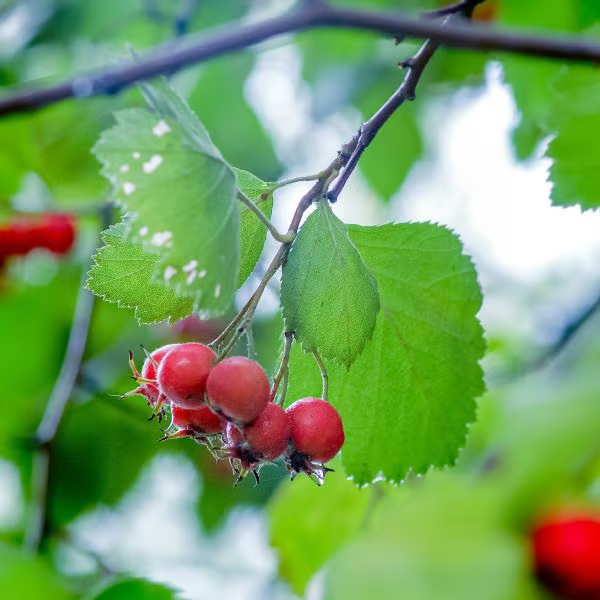
Hawthorn Berry
Hawthorn berry is a traditional cardiovascular tonic, rich in flavonoids, vitamin C and fibre, supporting heart health, and circulation. Unique to hawthorn, its flavonoids enhance blood flow and oxygen delivery, which contributes to cellular energy production. In Chinese medicine hawthorn berries are used to enhance digestive strength and nutrient absorption which also helps improve energy levels, reducing fatigue and enhancing endurance and vitality. Vitamin C and antioxidants protect cells from oxidative stress, further supporting sustained energy levels. Additionally, its mild adaptogenic properties help balance stress and energy regulation.
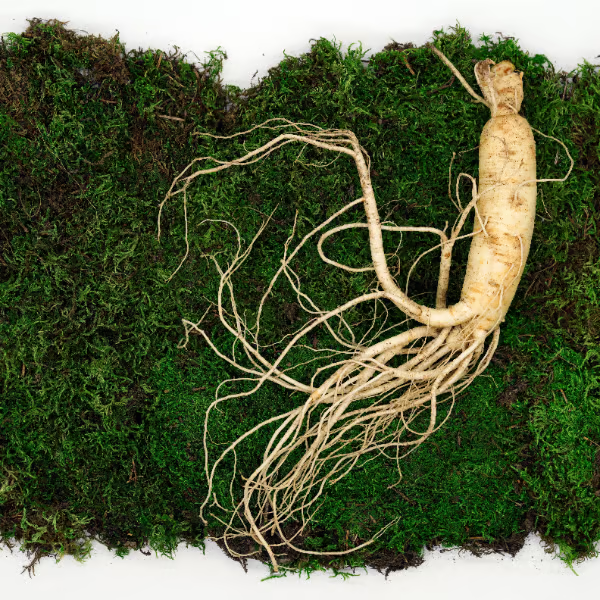
Panax Ginseng
Panax ginseng—also known as Korean ginseng—is a traditional adaptogenic herb known for boosting energy, focus, and resilience to stress. Recent studies show that regular supplementation can reduce tiredness and improve mental clarity, especially during times of fatigue or pressure. Research has found it helps lower oxidative stress in the body while supporting natural energy production. Its active plant compounds, called ginsenosides, are thought to improve how the body uses energy and copes with physical and mental strain, making Korean ginseng a valuable natural aid for sustained vitality and performance.
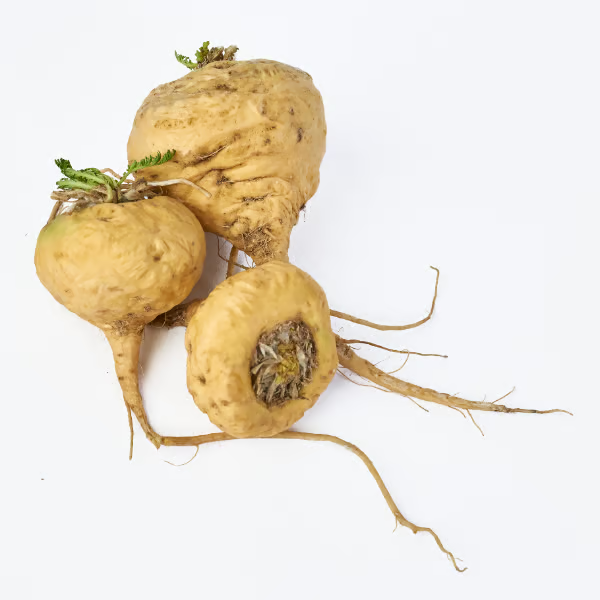
Maca Root
Maca root—often called “Peruvian ginseng”—is a traditional superfood known for helping boost stamina and reduce tiredness. A recent clinical study found that women who took maca extract daily for four weeks reported feeling less fatigued compared to those taking a placebo. Another large review in 2025 showed that maca can support physical energy and endurance, especially when taken regularly and at higher doses. Its natural plant compounds, like macamides, are thought to play a key role in supporting overall vitality, making maca a popular choice for natural energy support
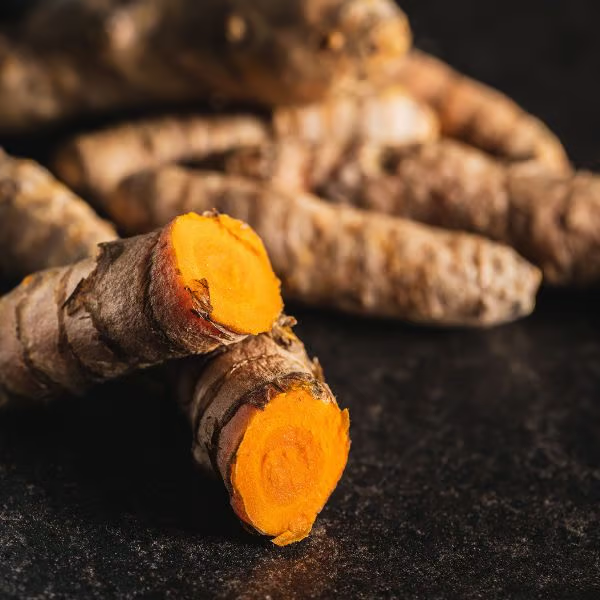
Turmeric
Turmeric is an immune-enhancing spice, renowned for its high concentration of curcumin, a bioactive compound with potent anti-inflammatory, antioxidant, and antimicrobial properties. Curcumin strengthens the immune system by modulating immune cell activity, reducing inflammation, and enhancing the body’s defence against infections. It also helps combat oxidative stress, protecting immune cells from damage. Turmeric supports gut health, where much of the immune system resides, by promoting a balanced microbiome and reducing inflammation in the digestive tract.

Ginger
Ginger is a potent immune-boosting root packed with bioactive compounds such as gingerol, which possess powerful anti-inflammatory, antimicrobial, and antioxidant properties. These compounds help strengthen the immune system by reducing oxidative stress, combating infections, and enhancing white blood cell activity. Ginger’s warming effect supports circulation, allowing the body to efficiently remove toxins and pathogens. It also aids in gut health, where much of the immune system resides, by improving digestion and nutrient absorption, plus promoting a balanced microbiome. Ginger is a powerful ally for overall immune resilience and vitality.
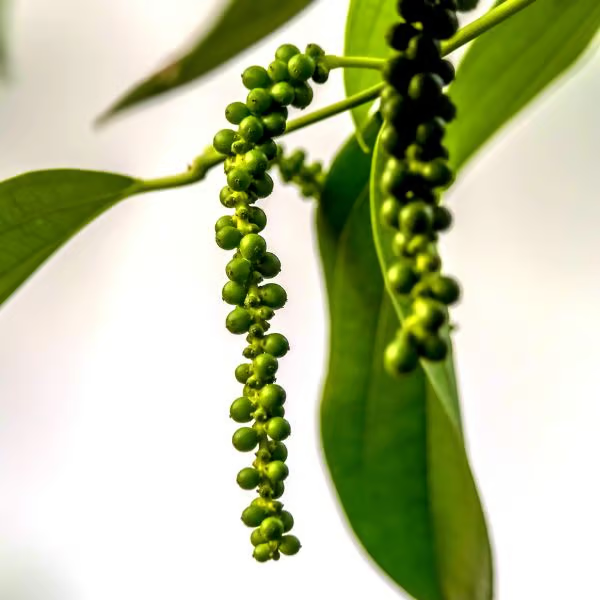
Black Pepper
Black pepper is rich in piperine, a bioactive compound that enhances nutrient absorption, reduces inflammation, and supports immune function. Piperine stimulates white blood cell activity, helping the body defend against infections, while its antioxidants protect immune cells from oxidative stress. Black pepper also has antimicrobial properties, supporting gut health. A key benefit of black pepper is its ability to enhance curcumin absorption from turmeric by up to 2000%, significantly amplifying turmeric’s anti-inflammatory and immune-boosting effects, making this combination a powerful tool for strengthening immunity and overall health.
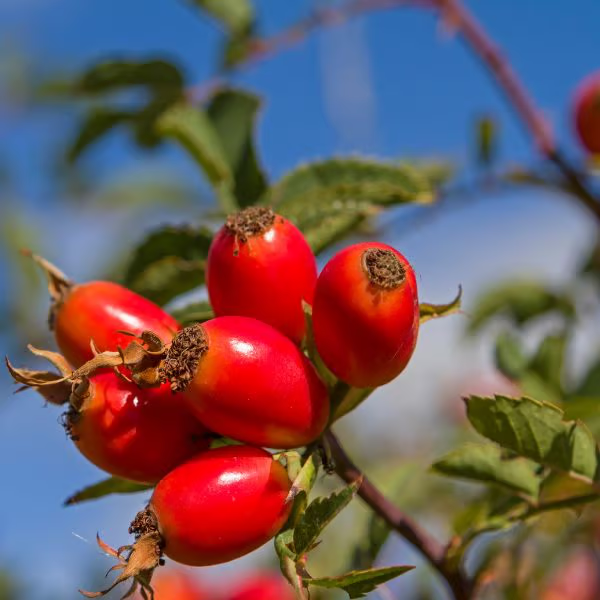
Rosehip
Rosehip (Rosa canina), the bright red fruit of the rose, has long been prized for its immune‑supporting qualities. Rich in vitamin C and flavonoid antioxidants, rosehip strengthens the body’s natural defences and supports white blood cell function to help ward off common infections and promote recovery. A growing body of research highlights its role in enhancing immune resilience and reducing inflammation, helping the body handle stressors more effectively. Traditionally, rosehip was valued across Europe and Native American cultures as a tonic for vitality and protection against colds, especially during winter months.
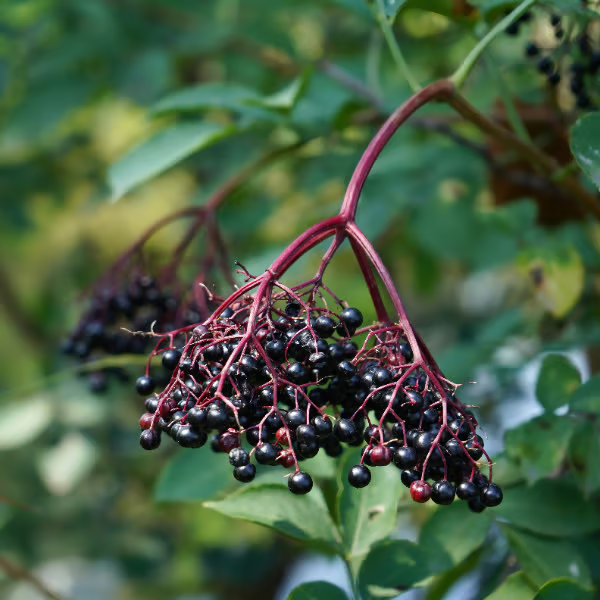
Elderberry
Elderberry (Sambucus nigra) has long been cherished across Europe and Native American communities as a natural shield against colds and flu. Today, research supports its traditional reputation: systematic reviews show elderberry extracts can shorten the severity and duration of upper respiratory infections and boost the body’s immune response without overstimulating the immune system. Its rich antioxidants—especially anthocyanins—support white blood cell function and help reduce inflammation, aiding recovery and resilience during seasonal illnesses. With both ancestral wisdom and modern science in its favour, elderberry offers gentle immune support grounded in centuries of herbal use.
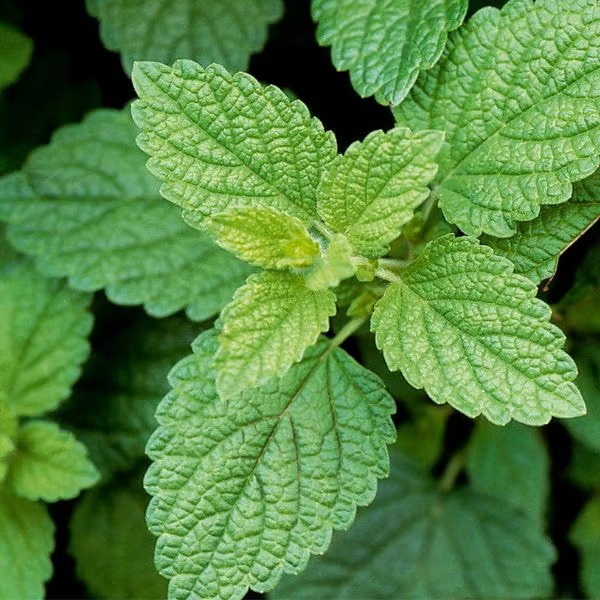
Lemon Balm
Lemon balm leaf is a soothing botanical used to support gut health, digestion, mood and overall nervous system well-being. Rich in antioxidants, polyphenols, and essential oils like rosmarinic acid, which relax spasmodic digestive muscles that can lead to bloating, cramping, and discomfort. A key herb that works on the gut-brain connection lemon balm leaf reduces stress and cortisol levels, which can otherwise disrupt digestion. By enhancing digestion and calming the nervous system, lemon balm leaf plays a key role in maintaining a healthy, balanced gut environment.
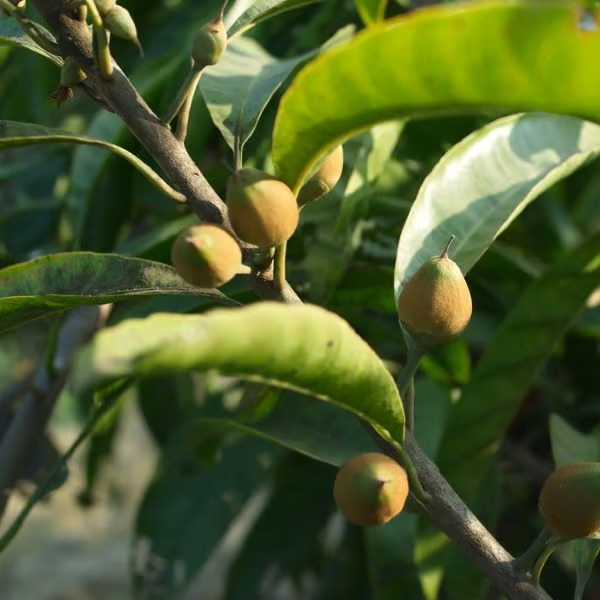
Lucuma
Lucuma is a gut-friendly superfood packed with prebiotic fibre, beta-carotene, polyphenols, iron, and B vitamins, making it an excellent choice for supporting digestive health.Lucuma’s prebiotic fibre helps nourish beneficial gut bacteria, promoting a balanced microbiome and improving digestion. The polyphenols and beta-carotene provide powerful antioxidant protection, reducing oxidative stress and helping to maintain a healthy gut lining. Additionally, its low-glycaemic carbohydrates support blood sugar balance, preventing gut inflammation and discomfort. The presence of iron and B vitamins enhances energy metabolism, aiding digestion and optimizing nutrient absorption.
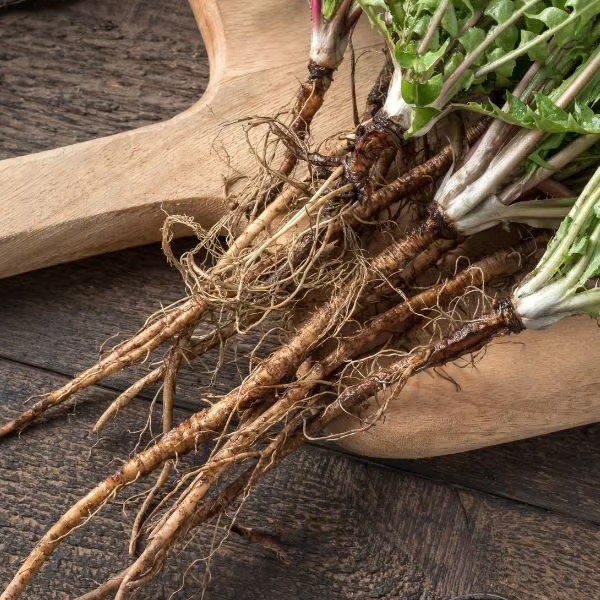
Dandelion
Dandelion root (Taraxacum officinale) is increasingly recognised for its role in supporting gut health. Rich in inulin, a natural prebiotic fibre, it helps feed beneficial gut bacteria and supports a balanced microbiome. Studies have shown it may aid digestion, reduce bloating, and support regular bowel movements. Its natural compounds also appear to help calm gut inflammation, promoting a healthier digestive environment. While traditionally used in herbal medicine, modern research is now confirming dandelion root’s value as a gentle, effective aid for digestive wellness.
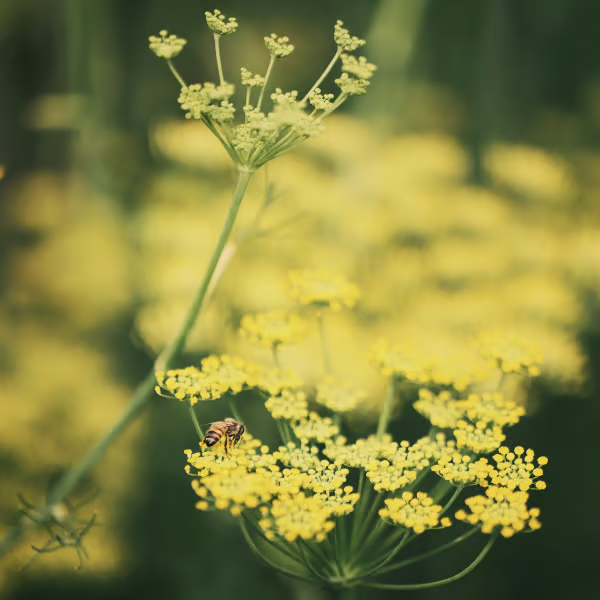
Fennel
Fennel (Foeniculum vulgare) is increasingly recognised for its soothing effects on the digestive system. Studies show that fennel can help reduce bloating, gas, and abdominal discomfort, particularly in people with irritable digestion. Its natural compounds have gentle antispasmodic properties, which may help relax the muscles of the gut and support smoother digestion. Research also highlights its potential to ease symptoms of indigestion and support overall digestive comfort. Backed by growing scientific evidence, fennel is emerging as a reliable, plant-based option for maintaining gut harmony.
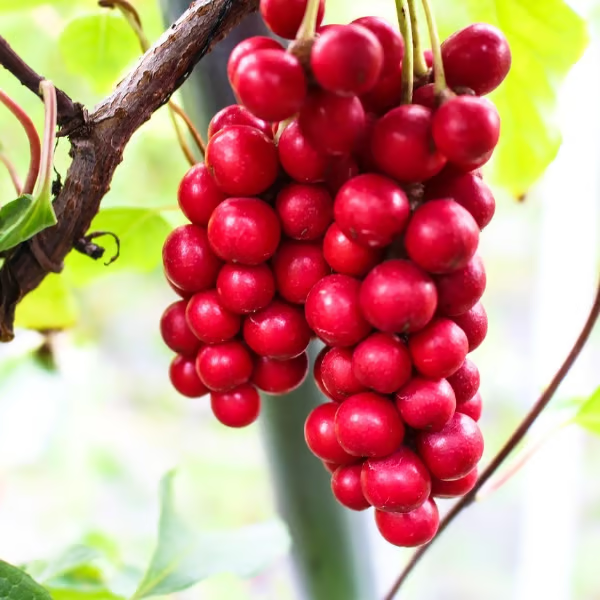
Schisandra
Schisandra (Schisandra chinensis) is a vibrant berry traditionally used in Chinese and Russian medicine to support energy, resilience, and whole-body vitality. It’s now gaining recognition for its wide-ranging health benefits, including its positive effects on gut health. Rich in plant compounds like lignans and polyphenols, Schisandra may help soothe the digestive tract, support a healthy gut lining, and promote balance in the gut microbiome. It’s also known for its adaptogenic properties, helping the body manage stress—a key factor in digestive wellbeing.


Our impact
Benefits for the planet
Organic Farming Benefits
Organic farming avoids synthetic pesticides and fertilizers, reducing chemical exposure for people and protecting biodiversity. It promotes healthier soil, cleaner water, and nutrient rich crops while lowering environmental pollution and carbon footprints.
Regenerative agriculture techniques
Regenerative farming focuses on soil regeneration, crop rotation and minimal tillage. These improve soil health and increase nutrient density in crops, ensuring healthier food & long term sustainability.
Seeds & the environment
Seeds such as flax improve soil health by preventing erosion and replenishing nutrients. Hemp is a natural soil rejuvenator with deep roots that improve structure and organic matter. Chia seed requires minimal inputs and thrives in poor soils. Their deep roots aerate soil, promote carbon sequestration, and reduce the need for synthetic fertilisers.



